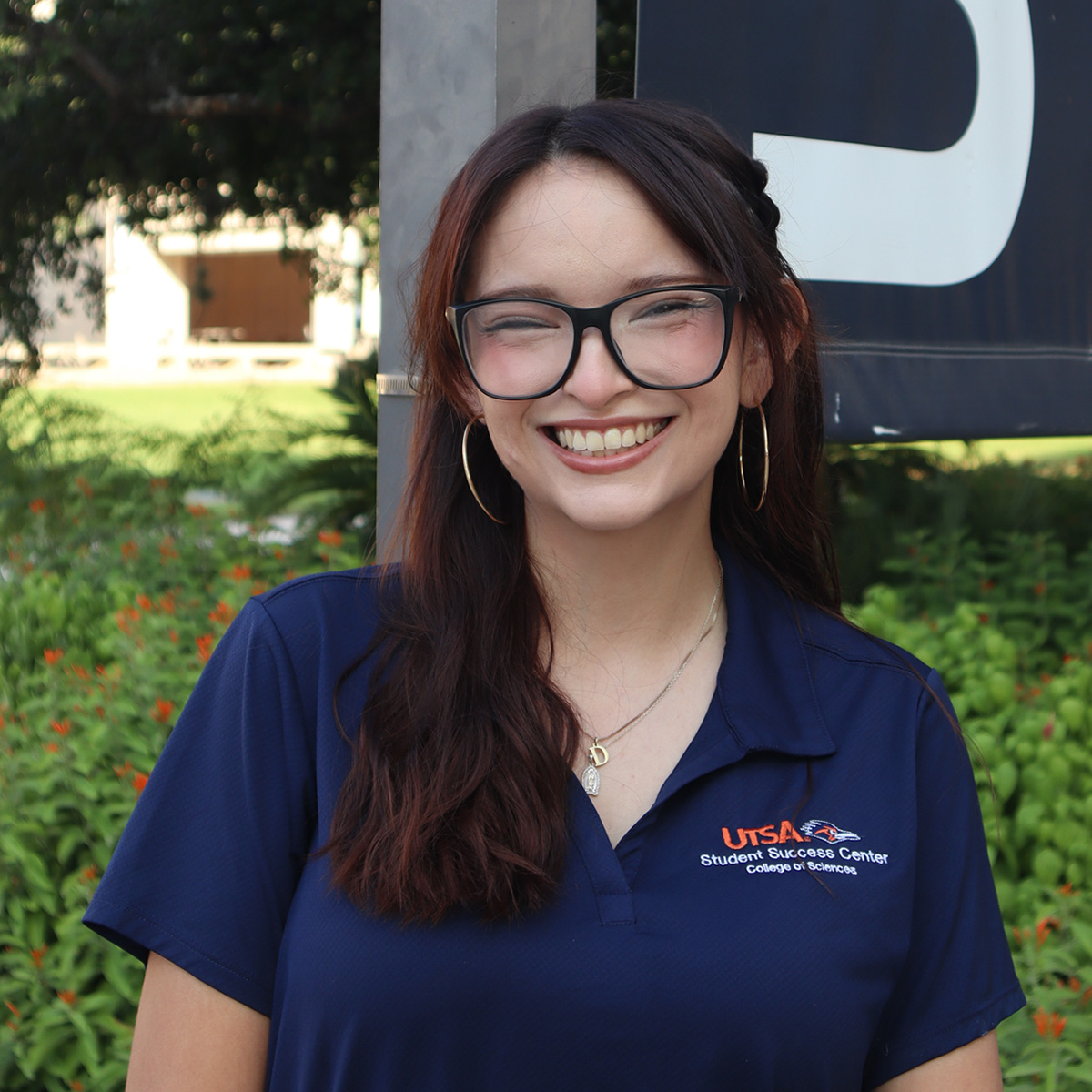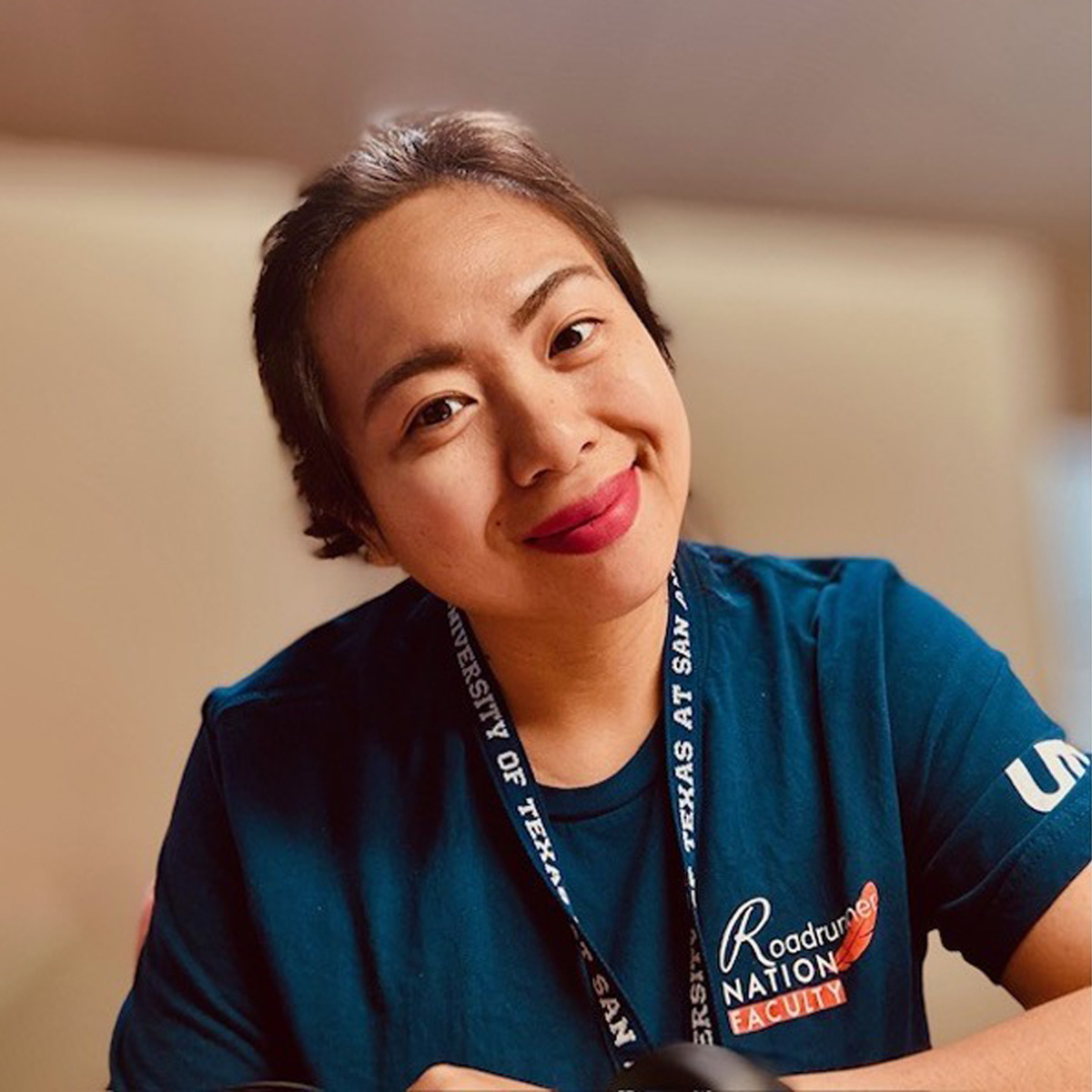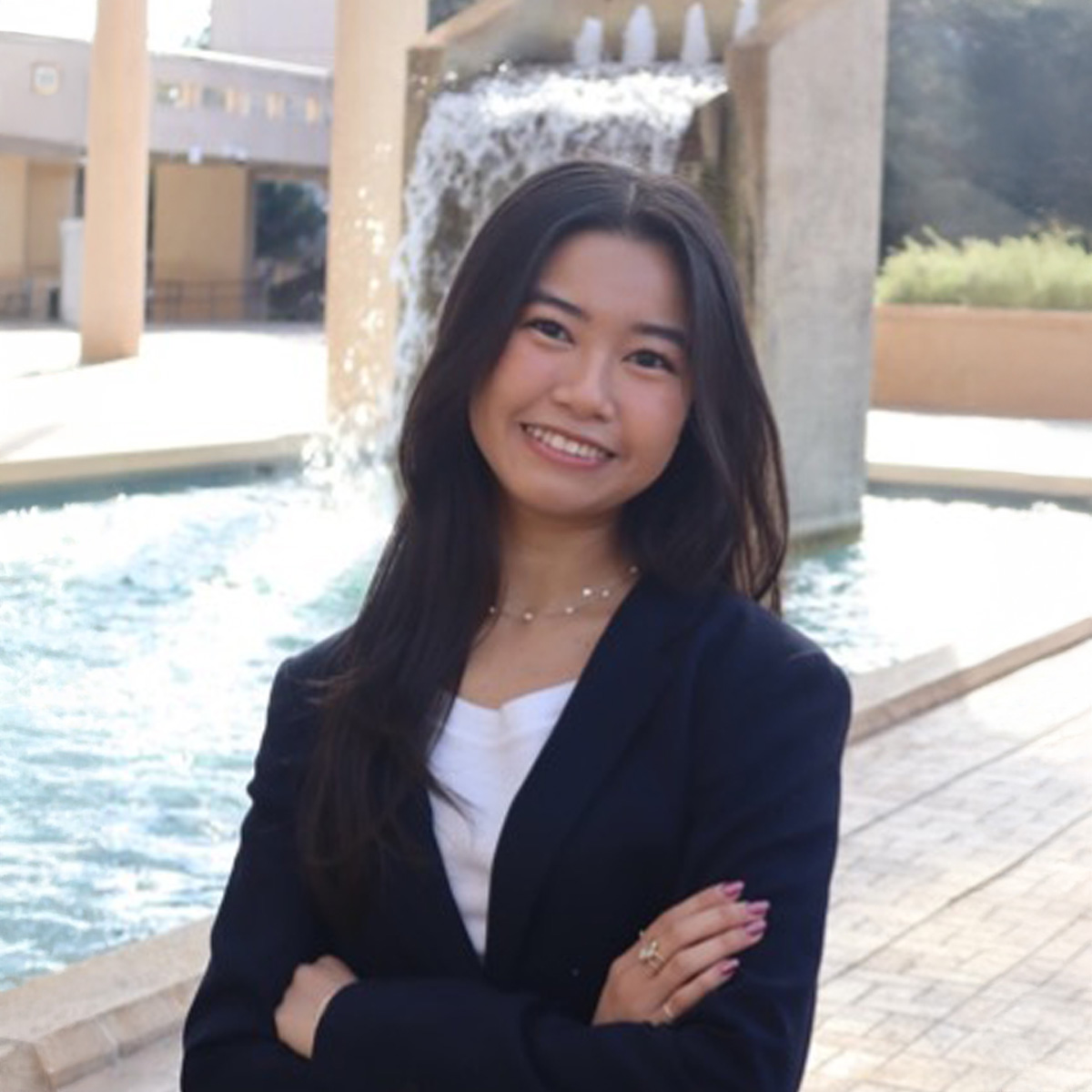Posted on September 20, 2021 by College of Sciences
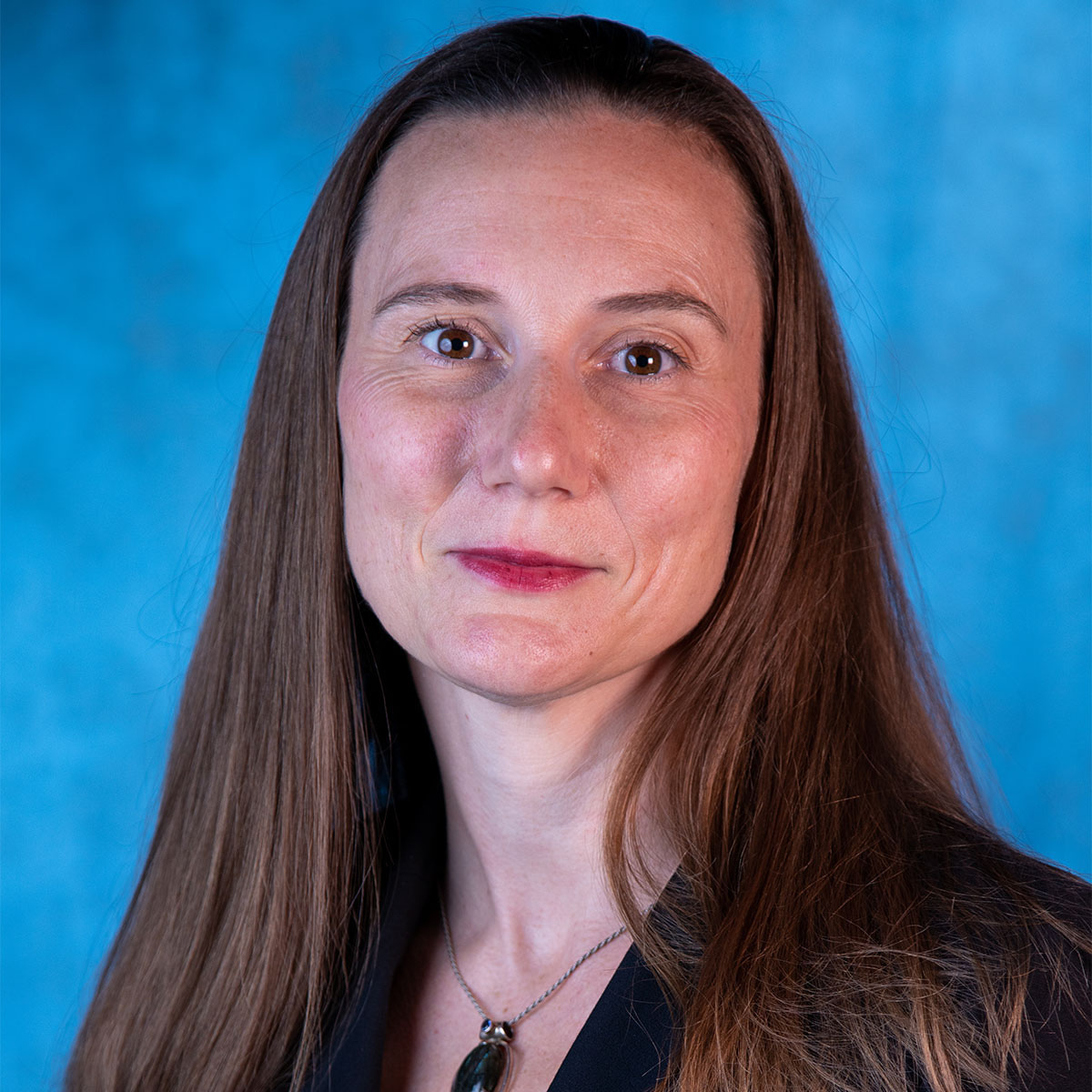
Mariah Hopkins, Ph.D., Department of Integrative Biology
Dr. Mariah Hopkins has been chased by an ostrich, had her lunch stolen by a baboon and came eye-to-eye with a 40-ton humpback whale–all in the name of research. Before joining the College of Sciences, she taught courses at the University of California at Berkeley and the University of Texas at Austin, and she developed field biology training programs and conservation programs in the U.S. and Central America. She spent two years studying several species of monkeys at a remote tropical forest site in Panama that was accessible only by boat. She has also conducted research on African wildlife while living in the savanna in a thatched-roof hut with no electricity or running water.
Hopkins now brings that adventurous spirit to her classroom. "Biology is the study of life, and to me there is no greater mystery," she said. "I get to spend my day figuring out how life works and teaching students about the amazing life forms on this planet and the underlying processes that make that life possible."
The majority of her previous research focused on understanding and predicting animal space-use patterns and the implications of those patterns for human-wildlife conflict and disease spread. Now, she is developing a research program that evaluates the effectiveness of innovative instructional technologies and pedagogical techniques for STEM education. In 2020, she initiated a research project comparing the impact of different virtual lab formats on learning outcomes for introductory biology students. This project is part of ongoing efforts to improve experiential learning opportunities for students in large-format science courses.
During the COVID-19 pandemic, Hopkins has embraced innovative technologies such as simulations, case studies, biointeractives and virtual labs to engage students and provide additional experiential learning opportunities. In Fall 2020, she partnered with Academic Innovation to implement this experiential learning model in her non-majors Introductory Biology class, and she has since expanded the model to several other courses. The model is hugely successful; students report that they learned more, felt more engaged, were excited about the material and could see the real-world value of content more easily than in traditional class formats.
In recognition of her ongoing efforts to improve the academic experience for students, Hopkins was recently awarded the President's Distinguished Achievement Award for Core Curriculum Teaching. The award recognizes faculty who expertly implement UTSA's core curriculum focus, including the development of critical-thinking skills, communication skills, empirical and quantitative skills, and teamwork in their courses.
"It is incredibly rewarding to see my students succeed," she said. "That success can be something as simple as students making connections between content and their daily lives. It can be students working through a problem and developing a newfound confidence in their abilities or identifying as scientists for the first time. It can also happen after college, when students are able to market the skills that they have learned in class to land internships, jobs and admission to graduate school. Witnessing the impact of my courses on my students' college and career trajectories is one of the greatest rewards I have experienced as a teacher."
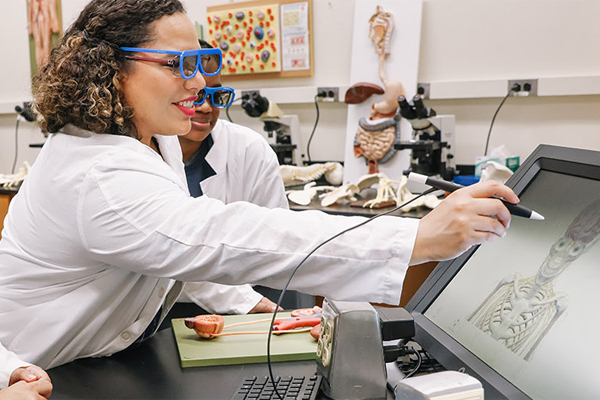
Explore the BHE Department!
Designed for students who want a focus in biological structures and systems from multicellular life to local ecosystems to the entire terrestrial biosphere. Students have access to strong research programs, state-of-the-art resources, and competitive financial support.
Recent BHE Spotlights
View More Spotlights